The Muttahida Qaumi Movement (MQM) and the Awami National Party (ANP) are both attempting to be the last party standing in the metropolis, with the city being ignored by the privileged classes, the negligent state and unconcerned provinces. Ethnically and politically rooted violence, along with an intensifying sectarian conflict, has taken root in the city. Murders occur in broad daylight in endless shootings and bomb attacks. Incidents of kidnapping and extortion finance local violence and fund broader terrorist activity.
The roots of conflict in Karachi lie in the struggle for basic human needs, such as security, distributive justice, and political and economic participation. In this case, feuding groups cleave along ethnic lines creating enduring hostility accompanied by outbreaks of violence. Although defined as political parties, the MQM and the ANP are largely ethnically based. The MQM depends on the Urdu-speaking constituency, whose parents and grandparents migrated from India after Partition to build the Quaid’s vision. In recent years, Pashtuns have made their way to Karachi fleeing conflict in the Afghanistan/Pakistan border areas and seeking economic opportunity. This led to the ANP, a predominantly Pashtun party, rising in Karachi politics with newly gained assembly seats in 2008. In a city with an existing Mohajir majority and a government routinely dominated by the MQM, the large influx of Pashtun migrants disturbed the status quo. With both the MQM and the ANP vying not only for political control of the port city, but also for command over the significant trade conducted here, tensions have escalated to where it is unsafe to enter certain neighbourhoods for fear of being killed due to one’s ethnic appearance.
Politics, violence and criminal activity in Karachi are intertwined. Lethal attacks allegedly authorised by high-ranking officials in political organisations are carried out by hired guns, despite assurances from leaders that their parties follow peaceful processes. Criminal organisations operate with political patronage from local parties. Furthermore, infiltration by the Taliban threatens to exacerbate Karachi’s violence and instability, most recently demonstrated by the attack on Jinnah International Airport. The Pakistan Army recently launched Operation Zarb-e-Azb to counter extremists, but it is limited to North Waziristan, while Karachi remains relatively unprotected by national law enforcement or military forces. Many Taliban operatives fleeing the military offensive are certain to relocate to Karachi for safety and to take advantage of the flourishing criminal activities here. Karachi foreshadows Pakistan’s future if the political leadership treats the spreading terrorist networks as it has the ongoing violence in Karachi: with an incoherent counterterrorism policy, inadequate infrastructure and public services, and an abdication of responsibility towards good governance.
A Crisis Group Asia Report, Policing Urban Violence in Pakistan, found 2,174 killings reported in Karachi in 2012 and over 2,700 in 2013. A report issued by the Human Rights Commission of Pakistan puts the number of violent deaths in Karachi in 2013 at 3,200. Yet, the neglect shown towards this key city by the national leadership suggests not only a lack of concern for its denizens but also for its significant economic value. A city of 20 million and the largest in Pakistan, Karachi dominates the domestic economy as well as provides the bulk of the country’s GDP. Despite this, Nawaz Sharif’s government has done little to quell violence in the city except to establish a committee to monitor law enforcement, all while Karachi’s inhabitants and economy suffer as collateral damage. Not only are the police and civil administration powerless against the strength of armed, established gangs with significant political and financial backing, many are part of the collusion that allows criminal organisations and militant groups to operate without consequence. Legal measures were implemented in September 2013 to empower Pakistan’s paramilitary force the Rangers for extended operations in the city when the police were deemed incapable of maintaining law and order and an army mandate considered too severe and potentially destabilising. But even paramilitary efforts proved to be temporary and failed to curb violence. They are reminiscent of a similar Rangers-led operation conducted in 2011 at the order of then president Asif Ali Zardari, a clearly unsuccessful initiative considering persisting urban violence.
State initiatives to respond to Karachi’s volatile conditions are superficial and ad hoc, and continually refuse to acknowledge the root causes of the city’s upheaval — deficient urban development, political and societal fragmentation, corruption of the police, ineffective criminal justice procedures and lack of ethical governance. These systemic issues are at the core of multifaceted ethno-political, sectarian, militant and criminal violence in Karachi. As manifestations of political and ethnic power grabs, targeted killings are part of a larger phenomenon of political tensions and violent conflict in Pakistan that is being carelessly overlooked or systematically ignored. The leading parties of Karachi have no incentive to address the deteriorating political, social, and economic conditions because investing in violent efforts to control the whole city yields larger direct gains than a collaborative agreement that promotes democratic participation and distributes resources more broadly. The party ruling at the centre, the PML-N, with its Punjab-centric view, seems untroubled by the unrelenting violence. A high-level meeting between Prime Minister Sharif, former president Zardari, and the Director General of Inter-Services Intelligence discusses law enforcement in the city while the ground reality hardly changes and Karachi still waits for an end to its suffering.
Published in The Express Tribune, July 15th, 2014.
Like Opinion & Editorial on Facebook, follow @ETOpEd on Twitter to receive all updates on all our daily pieces.
COMMENTS (13)
Comments are moderated and generally will be posted if they are on-topic and not abusive.
For more information, please see our Comments FAQ
1737286368-0/trump-(1)1737286368-0-405x300.webp)






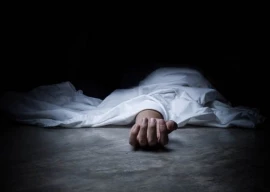

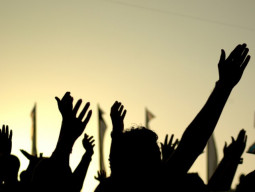

1737185197-0/Express-Tribune-(2)1737185197-0-270x192.webp)
1737188551-0/Untitled-design-(97)1737188551-0-270x192.webp)
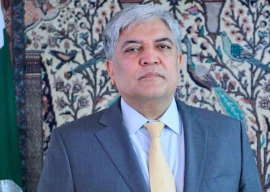
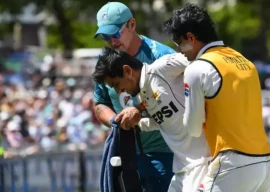
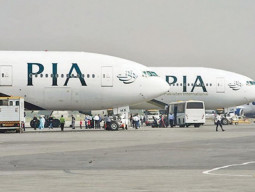
1737114296-0/Express-Tribune---News-Desk-(4)1737114296-0-270x192.webp)






Well said, the article seems to be written in 2008, initially highlighting some of many conflicts that the city faces since decades, totally neglecting the electoral realities that also exists since all these long decades. The Pashtun - Mohajir ethnic conflict is at least 50 years old in the city. But the ANP, MQM politics gain their momentum separately. MQM gain power in Urban Sindh in 80s destroying the last fort of Jamat-e-Islami. Whereas ANP get back its very small representation in Sindh assembly after 1985 in 2008. While Land Grabbing Business in Karachi keep running under state patronage since long. The City remain neglected in terms of authority and funds and that is it's main problem. Autonomy to small but stable units can solve many of Pakistan's problem. The politico-ethnic conflicts exists and will keep existing where there is lack of facilities and resources.
Agree with writer that Karachi is a neglected city and it's present condition is due to abdication of responsibilities at both federal and provincial level. After reading the column the first thought that came to mind as if she has been just introduced to Karachi politics.Pashtun influx began well before the "conflict in Afghanistan/Pakistan border areas.Looks like she wrote the piece in 2008 and ET has just published it. By the way where is PPP in this whole column,purposely left out ?
It's waste of time. I thought i will put some persepctive on the issue and how to deal with it but nothing like this found. In Pakistan 6 out 10 english articles are published just because author can write in reasonabaly fluent English. Bye the way while living in Karachi myself why i need any article from someone sitting in Washington?
A very good article for someone who doesn't know Karachi. In your article, however, you overlooked the third hand; PPP. The trio of ANP, MQM & PPP are real culprits for mess in Karachi and are responsible for almost all the ransom, extortion, kidnapping, murderers & bank robberies.
One of the party is blamed to have looted NATO's arm containers to arm its militia wing. An example of that could be seen was when rangers started clean up operation in Karachi then militia group of this party was seen wearing night goggle - something that Pakistani army doesn't have. Why these groups have so many arms and one wonder for what purpose?
As Huma mentioned in her comments, after 18th amendment federal government can do very little for peace in Karachi. An appointment of IG Police is an example of that. Federal government can't install an honest man as IG for Karachi as Sindh government doesn't want an honest police officer running the city. Shaukat Hayat, who was a very honest man and making quite a progress against getting rid of criminals from the city was let go on MQM insistence when it joined provincial government. And the next IG was released as he was not giving in to his resistance against inferior police gear that PPP/MQM led government wants to purchase from an unknown East European seller.
Blame goes around but really this game will go on until people of Karachi tell trio of ANP, MQM. PPP that enough is enough and reject all three of them. In a population of 20 million, there got to be few who can rise above dirty politics of this trio and do something for people of Karachi.
What Karachi needs is a autonomous local body system, with policing, transportation, finances and city-management strictly under the Mayor's control over the whole city. This is the only way to address the crime and other issues. If you actually visit Karachi and ask people when they saw the greatest improvement in Karachi taking place, they will say it was under the mayorship of Naimatullah Khan and of course the local-celebrity-now Mustafa Kamal. Why not actually listen to Karachiites in resolving Karachi's issues?
@Aysha M: Exactly! Karachi must be run by real Karachites, this is not only the best but it's the only solution.
@huma: Solution: local government, with policing, utilities and transportation under the city mayor
Author was free and nothing to do, she has written it on wrong time and situation
@Ali Pakistani: You are prejudiced. And biased. The author has more information available to base her judgments. While you are just someone spitting paan in the wind.
MQM will dominate Karachi forever.
Time for ANP and PPP to come to terms with reality.
This article is a report written for a hermit who is disconnected with the real world outside.
We in Pakistan know already know more then this simplistic mindset report..
A demeaning statement by this novice writer was that both ANP and MQM are ethnic parties. The writer does not give any factual research or valid reason to assume that.
Would the writer call, PPP, PML-N and PTI ethnic parties too?
I really do not understand why would this writer single out two political parties, that have long and deeply embedded political traditions 'ethnic parties'?
The author spends two paragraphs describing the feud between MQM and ANP which everybody already knows about. GIVE US SOLUTIONS. Also, after the ill thought 18 amendment, not sure how much federal govt can do anything about Karachi.
What's new in this article anyways? Whatever you have written is known to most of the readers.